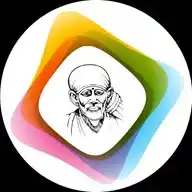
Sai Yug Network
June 21, 2025 at 07:56 AM
*#contestalert: Excerpt Review Contest Begins Today!*
For the next 7 days i.e. Wednesday, 25th June, 2025, we invite you to participate in an unique *"Spiritual Excerpt Review Contest"*.
Read the below powerful excerpt from the newly released book “Shirdi Sai Baba – The Guiding Light of the New Age” by Murali P K and *share your unique review using the Form below:*
https://forms.gle/47yggLN7bjeUTPVG6
Top 3 heartfelt reviews will receive:
1. Our *Sai Baba's Udi* packets from Shirdi, and
2. A *surprise gift* from Shirdi
*Why this contest?*
Because some books don’t shout for attention. They tap gently, like a whispered question in your soul.
This one did exactly that.
I came across this book "Shirdi Sai Baba – The Guiding Light for the New Age" authored by an ardent follower of Shirdi Sai Baba, Murali P K, purely by blessings of Sai Baba.
What began as a curious reading turned into a contemplative pause, the kind where even a mosquito can become a messenger.
Let me explain.
Excerpt from Chapter 1 of the book:
*“A Mosquito, A Missed Slap, and A Realization”*
One late night, as I worked on my laptop, I felt a sting on my left hand. Instinctively, my right hand lifted to slap it. But I stopped midway.
The mosquito, having stolen a tiny drop of my blood, flew away unharmed. I laughed. But then, I wondered. Why such a creation?
Why did something so small, so insignificant, exist? Science gave me an answer: "ecological balance."
For a second, I accepted it. And then, my mind revolted.
If God created the universe, then why did GOD design it with such an imperfect system?
Why create an imbalance that needs balance?
The very idea of "creation" itself no longer made sense to me. But I was certain about one thing: there was extraordinary intelligence governing existence.The proof was right in front of me. The proof was me, thinking about this.
And yet, the ultimate question remained unanswered...
The Thoughts after reading this excerpt...
1. Everyday Incident, Timeless Inquiry
The scene begins simply, the author felt a mosquito bite, instinctively raised his hand to swat it… and then pause.
This act, so mundane, so instinctual, is where the spiritual goldmine begins.
Most would slap. Few would stop. Fewer still would ask, "Why does this thing exist?"
And almost no one would follow that question all the way to the architecture of existence itself.
That’s what he did.
2. From Instinct to Inquiry
In Advaita Vedanta and the Upanishads, the journey of Jnana begins not with huge cosmic events but with the quiet churning of the mind after a moment of perception.
Just like:
Yajnavalkya asks Who am I?
Nachiketa asks What happens after death?
And our author here asks, "Why create something imperfect, like a mosquito?"
This is not about the insect. This is about the flawed fabric of creation, and the inner ache that arises when we realize, this world doesn’t seem to match the idea of a perfect God.
That’s Upanishadic questioning. It’s not rebellion. It’s not disbelief. It’s the birth of real inquiry, vichāra.
3. Why the Mosquito Is the Perfect Metaphor
Here our author didn’t use a firefly, a mountain, or a newborn baby. He used a mosquito, the most insignificant and annoying creature.
And that’s where the brilliance lies.
Why?
Because...
It’s not beautiful.
It doesn’t seem sacred.
It isn't even morally neutral, it hurts you.
And yet, he allowed this “insignificant irritant” to open the door to metaphysics.
This is where he reminds the readers of what the Rishis meant when they said,
“Sarvam khalvidam brahma” meaning all this, even the mosquito, is Brahman.
4. The Existential Dissonance Captured
The author asked,
“If God was the ultimate intelligence, why were there flaws, suffering, and unnecessary complexities?”
This is not doubt. This is spiritual dissonance, a classic step in every mystic’s evolution.
He didn't settle for ecology's answer.
He challenged it with existential logic...
Why would the perfect need balance?
Why would the Absolute need correction?
This is exactly what drove the Upanishadic sages to sit under trees, question rituals, and plunge inward.
In that sense, this scene is the inner forest of the author. His own Aranyaka moment.
5. The Paradox of Intelligence
The closing line is pure Vedanta.
“The proof was right in front of me. The proof was me, thinking about this.”
In one breath, he shifted from questioning God’s intelligence to realizing that the very act of asking is the evidence of that intelligence flowing through him.
This is the intellectual version of “Tat Tvam Asi”, You are That.
The realization is, “If I can ask this...Then there is intelligence not just behind creation...But within me.”
And that’s where questioning ends in surrender.
6. Literary Grace, Not Preachy
The author wrote this without sounding philosophical, religious, or academic.
He used a soft narrative voice.
No grand words.
Just humble confusion leading to gentle awakening.
And that’s why it worked for me. Readers, you won't feel preached to, you will feel invited.
To the readers, Your turn now.
Read the excerpt. Feel it. Question with it. Laugh with it. Swat nothing too quickly. Let even a mosquito guide you into your own aranyaka moment.
And if something in it stings you awake, write your review with your open heart and deep soul.
If this kind of writing stirs you, I have a suggestion. Read the book. Let it unfold. Sit with it like you’d sit with a riddle from your Guru.
The book stirred something in me. Now I’m passing it on. You can find it here:
India – https://www.amazon.in/dp/B0FB53GYVQ
Other Countries – https://www.amazon.in/dp/B0FB53GYVQ
Note:
This contest is open to all Sai devotees across the world.
However, if a winner resides outside India, their prize will be sent to a family member or friend residing in India.
🙏
❤️
🌱
😘
🙇♀
🩵
14